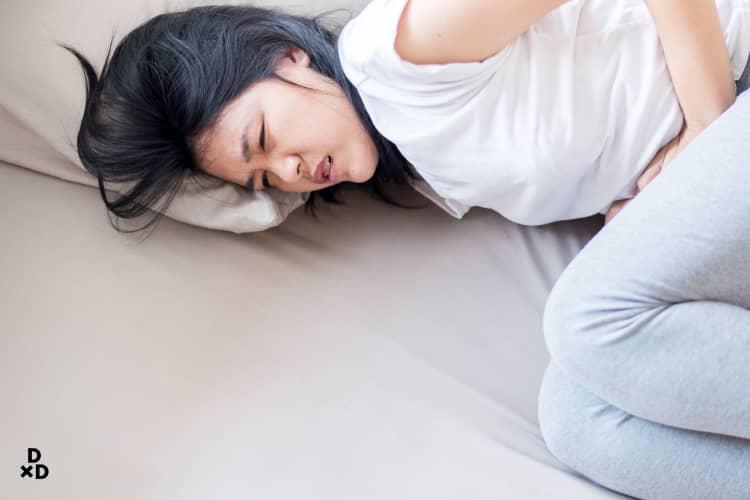Thank you for your question.
Diarrhoea is a relatively common side effect experienced during or after completing a course of antibiotics. This may also be associated with belly discomfort and bloating, but is usually self-limiting, short-lived and not associated with fever.
Clostridium difficile or C. Diff infection has a spectrum of manifestations ranging from asymptomatic carriage to severe or fulminant disease. Common presenting symptoms are watery diarrhoea, bloody diarrhoea, fever with abnormal laboratory parameters such as elevated white cell count. Severe disease may present with severe abdominal pain, dehydration, lactic acidosis and hypotension (low blood pressure), and may lead to bowel perforation. Risk factors for C. Diff infection include (1) Antibiotics such as clindamycin, fluoroquinolones, cephalosporins and penicillin, (2) recent hospitalization, (3) age >65, (4) use of proton pump inhibitors.
I echo my colleague’s opinion that conditions such as irritable bowel syndrome are more common causes of abdominal cramps and altered bowel habits. However, if (1) your symptoms persist, (2) there are other symptoms such as unintentional weight loss, poor appetite, bloody stools, (3) you have any of the risk factors for C. Diff infection listed above, or (4) you have a family history of gastrointestinal conditions (eg colon cancer, inflammatory bowel disease), I would strongly recommend that you seek a formal consultation with a specialist for a detailed review.





